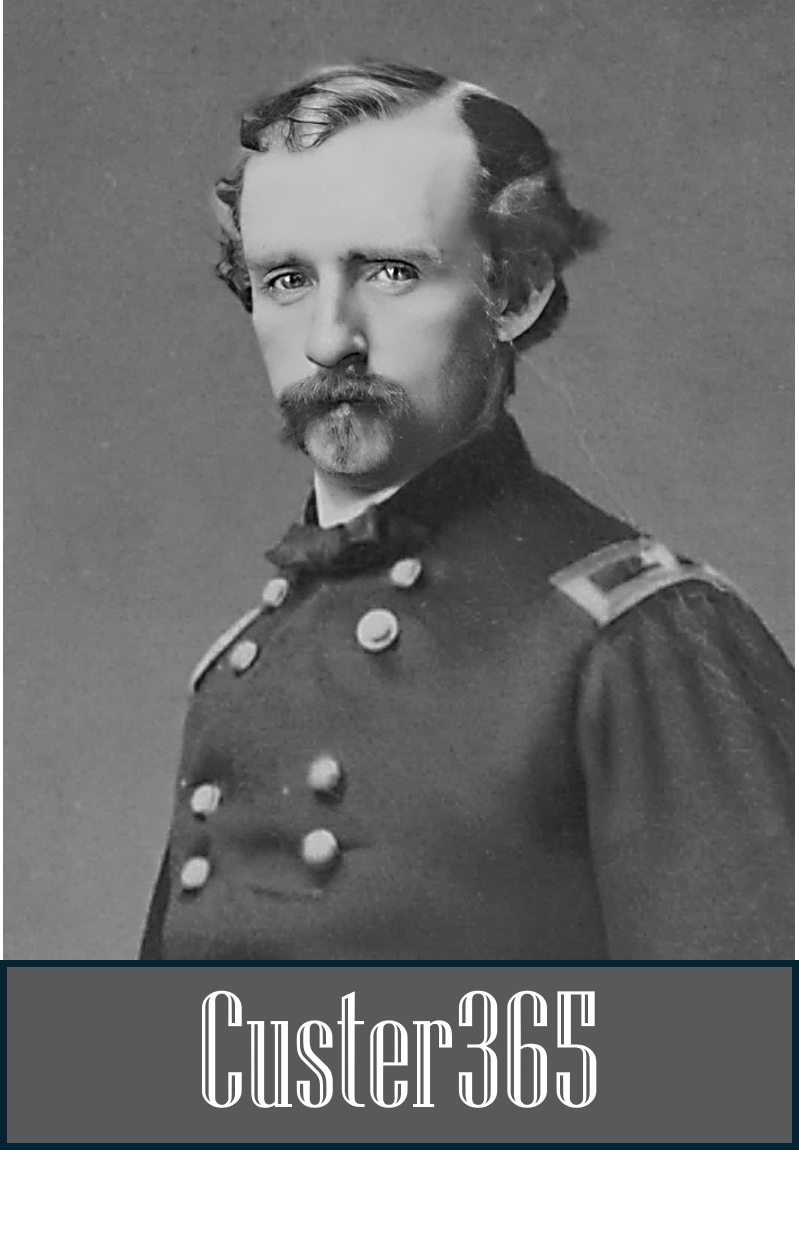AUG 28: ‘The Only Good Indian…’
If you ever wondered how the quote, “The only good Indian, is a dead Indian,” came about, Dee Brown answers it in the book, “Bury My Heart at Wounded Knee.”
Gen. Philip Sheridan (second from left) confers with generals under his command during the Civil war; (l-r) Wesley Merritt, George Crook, James W. Forsyth, and George Custer. (Credit: Library of Congress)
Following George Custer’s victory at the Battle of Washita River in Indian Territory (present-day Oklahoma) in November 1868, where Cheyenne chief Black Kettle, considered a “friendly” Indian leader was killed, Lt. General William T. Sherman encouraged Gen. Philip Sheridan to get Indians into camps where they could be exposed to civilized culture. From Fort Cobb, located in present-day Oklahoma, Sheridan and Custer sent out runners to four nearby tribes, telling them to come in and make peace or they would be killed.
Custer went out to call on a tribe on his own, Brown wrote, and brought with him an attractive Cheyenne woman, an interpreter who knew no English. (A story for another time, perhaps.)
Little Robe, the new leader of the Cheyennes, told Sheridan that his people were starving. Custer had burned their winter beef supply and they could find no buffalo along the Washita. They had eaten all their dogs. Sheridan replied the Cheyennes would all be fed if they came in to Fort Cobb and surrendered unconditionally.
“You cannot make peace now and commence killing whites again in the spring,” Sheridan said. “If you are not willing to make a complete peace, you can go back and we will fight this thing out.”
Little Robe: “It is up to you to say what we should do.”
Yellow Bear of the Arapahos agreed to bring his people to Fort Cobb.
A few days later Tosahwi (White Knife) brought in the first group of the Penateka band of Comanches to surrender. When he was presented to Sheridan, “Tosahwi’s eyes brightened,” Brown wrote. “He spoke his own name and added two words of broken English, ‘Tosahwi, good Indian.’”
“It was then that General Sheridan uttered the immortal words, ‘The only good Indians I ever saw were dead.’”
“Lieutenant Charles Nordstrom,” Brown continued, “who was present, remembered the words and passed them on until they were an American aphorism: ‘The only good Indian, is a dead Indian.’”


